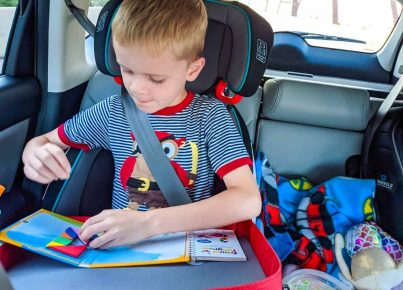Introduction:
Learning is an essential aspect of a child’s development, and it starts well before formal education. As parents, you can greatly contribute to your child’s early learning experiences by supporting their growth at home. In this free guide, we will explore smart ideas to help you boost your child’s early learning at home and set strong foundations for their future educational journey.
1. Create a Learning Environment
Make sure your home is filled with stimulating resources that encourage learning from a young age. Set up a dedicated space where your child can discover books, puzzles, drawing materials, and age-appropriate educational toys. Consider creating designated areas for different activities such as reading, art, and imaginative play.
2. Encourage Reading and Storytelling
Reading to your child daily can help develop their language skills, listening abilities, and imagination. Choose books with engaging stories and colorful illustrations. Encourage your child to participate in the storytelling process by asking questions or taking turns reading aloud.
3. Foster Creativity
Provide various materials and opportunities for artistic expression such as painting, drawing, sculpting with clay, or building with blocks. Encourage your child to create freely without focusing on the outcome or perfection.
4. Support Problem-Solving Skills
Introduce puzzles, logic games, or building toys that promote critical thinking and problem-solving abilities. This will not only stimulate their brain but also teach them perseverance, patience, and a sense of accomplishment upon completing the task.
5. Make Learning Hands-On
Children learn best by actively engaging in activities rather than passive observation. Incorporate hands-on experiences like cooking together, gardening, or conducting simple science experiments to reinforce practical knowledge and make learning more enjoyable.
6. Utilize Technology Wisely
While too much screen time is not advisable for young children, educational apps can be a valuable addition when used responsibly. Choose high-quality, age-appropriate apps that reinforce learning in a fun and interactive way.
7. Encourage Social Skills
Arrange playdates and activities that foster social interaction with other children. Through play, children learn to cooperate, share, express their emotions, and build friendships – all important life skills.
8. Be a Role Model
Children are more likely to engage in learning when they see their parents taking an interest too. Read, write, or engage in creative projects alongside your child. You can also discuss topics of interest, share your curiosity and enthusiasm for learning new things.
9. Set Realistic Expectations
Every child develops at their own pace; do not compare them to others or expect perfection. Appreciate and celebrate their progress while providing timely support when needed.
10. Be Patient and Consistent
Consistency is key in early education. Maintain a routine and be patient as they gradually grasp new concepts or overcome challenges.
Conclusion:
By implementing these smart ideas at home, you can lay a strong foundation for your child’s early learning journey and help them develop essential skills for success in school and beyond. Remember, parents are the first teachers; your support and engagement can make all the difference in your child’s life-long love for learning.





